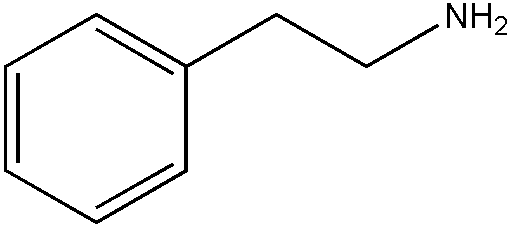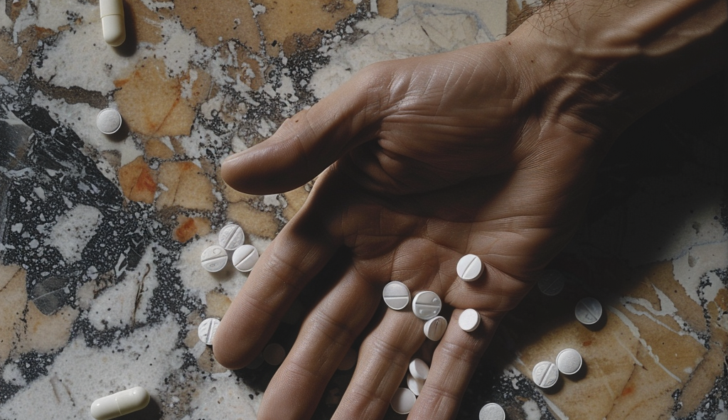What is Amphetamine Toxicity (Amphetamine Overdose)?
Amphetamine abuse is common and can have serious effects on the heart and brain, especially when taken in large amounts. Amphetamines have been misused in many parts of the world since the 1930s. Methamphetamine (METH) and 3,4-methylenedioxymethamphetamine (MDMA) are types of amphetamines that are often misused. Short-term effects of these drugs can cause increased alertness, high body temperature, loss of appetite, and a feeling of extreme happiness.
However, using these drugs in the long-term can cause damage to the brain and lead to serious mental health problems. Amphetamines work by increasing the levels of certain chemicals in the brain – dopamine, serotonin, and norepinephrine – by entering brain cells and disrupting their storage. MDMA specifically targets serotonin transporters, causing a high release of serotonin.
The effects of taking too much amphetamines can be severe and are typically seen in hospital emergency departments.
What Causes Amphetamine Toxicity (Amphetamine Overdose)?
The use of amphetamines, both in short-term and long-term scenarios, can lead to a harmful condition called amphetamine toxicity. The consumption of amphetamines has been on the rise because of various reasons. People are drawn to them for the desirable effects they produce like feelings of happiness, mood enhancement, and lessened appetite. Plus, amphetamines are accessible as both legal and illegal substances, and their manufacturing for the black market has increased as well. The low cost of illicit amphetamines in comparison to other illegal drugs also contributes to their increased use.
More recently, the stress and worry caused by the COVID-19 pandemic may have led to a surge in amphetamine use. It’s important to note that you don’t necessarily need to be dependent on amphetamines to experience toxicity from them. However, those who become addicted to amphetamines may face a greater risk. This addiction is often due to our bodies becoming accustomed to the effects of amphetamines, meaning that more and more of the drug is needed over time to achieve the same benefits.
Risk Factors and Frequency for Amphetamine Toxicity (Amphetamine Overdose)
In 2021, it was reported that 36 million people around the world used amphetamines. More than half of these users, or 55%, were men. In the Americas, 18% of the people receiving treatment for drug use disorders primarily abused amphetamines, while in Asia this figure was 42%.
According to the 2023 “Monitoring the Future Survey,” about 2.1% of teenagers in the US used illegal amphetamines. Further, it is estimated that 1.8 million Americans aged 12 years and older have a problem with using methamphetamine.
- In 2021, roughly 36 million people worldwide were using amphetamines.
- Most of these users, or 55%, were male.
- In the treatment of drug use disorders, amphetamines were the main abused substance 18% of the time in the Americas and 42% of the time in Asia.
- The 2023 “Monitoring the Future Survey” found that 2.1% of US teenagers were using illegal amphetamines.
- Approximately 1.8 million Americans aged 12 and older are struggling with methamphetamine use.
Signs and Symptoms of Amphetamine Toxicity (Amphetamine Overdose)
Amphetamines are typically used to combat fatigue, suppress appetite, and to treat a condition known as narcolepsy. However, if taken excessively, they can lead to a condition known as amphetamine toxicity. This condition often causes individuals to lose their appetites, become dehydrated, lose weight, and have trouble sleeping. They might also become extremely agitated, to the point that they could potentially pose a risk to themselves and the health professionals treating them.
When treating patients with amphetamine toxicity, health care providers need information about which drug(s) the patients took, how (route of administration) they took the drug, and how long they’ve been using the drug. It’s important to track their blood pressure, heart rate, and other vital signs right away. Additionally, a physical check-up is necessary to look for signs of increased body temperature (hyperthermia), potential damage to vital organs (such as neurological impairments, breathing difficulties, or new heart murmurs), and check for skin ulcers or abscesses.
Testing for Amphetamine Toxicity (Amphetamine Overdose)
If a patient seems to be under the influence and shows symptoms that match amphetamine toxicity, tests to identify breakdown products of amphetamine can be helpful to confirm a diagnosis. However, the ingestion of certain amphetamines may not always lead to a positive test result. On the other hand, some non-amphetamine medications could result in a false positive for amphetamines. Because of this, doctors should not solely base their diagnosis of amphetamine toxicity on drug breakdown product tests. Instead, a thorough review of the patient’s medication history can often provide the necessary information for a diagnosis, even without the test. Therefore, getting a detailed medication history is always important when evaluating patients who may be under the influence.
Moreover, laboratory tests and imaging should aim to confirm the harmful effects of amphetamines and rule out other causes for these effects. For instance, basic metabolism tests can confirm dehydration and very low sodium levels in the blood. It is also necessary to perform an electrocardiogram, chest x-ray, and troponin test to check for heart-related issues. A head CT scan can also be useful to check for a potential brain bleeding, which could explain neurological symptoms. Lastly, checking levels of creatine kinase and lactic acid in the blood may help identify muscle damage and lack of oxygen in tissues related to seizures, muscle spasms, or very high fever.

stimulant amphetamine.
Treatment Options for Amphetamine Toxicity (Amphetamine Overdose)
When it comes to treating amphetamine toxicity, there isn’t a specific cure. The treatment mainly involves managing the symptoms and complications that arise from the toxicity. If a patient is agitated, they should be treated with a type of sedative called benzodiazepines. Diazepam is a good choice if it can be given through an IV, but lorazepam or midazolam can also be used and are usually given through a muscle. If the patient is dealing with hyperactive delirium, ketamine may be used instead of benzodiazepines.
In those who are experiencing hallucinations or severe confusion (delirium), additional treatment involving a substance called a dopamine antagonist, with haloperidol as the choice, may help. However, this class of medications must be used very carefully due to possible side effects that may worsen the condition, such as lowering the seizure threshold, causing movement disorders, increasing heat production, and affecting heart function.
Patients can also experience a spike in blood pressure due to amphetamine toxicity, which may reduce if their agitation is treated. Nonetheless, some patients may require specific medications to reduce their high blood pressure. Agents such as nitroglycerin and nicardipine could be effective in these situations. Beta-blockers should not be used alone as they might actually exacerbate high blood pressure in such cases. Similarly, if the patient is showing signs of high body temperature, it may decrease with the treatment of agitation. However, cooling methods like ice baths, misting, or cooled IV fluids might also be necessary if the body temperature goes above 107 °F.
In the case of seizures, benzodiazepines should be used first, along with barbiturates and propofol if needed. Certain other medications should be avoided as they are ineffective in controlling seizures caused by toxicity.
Lastly, there isn’t an approved treatment for amphetamine use disorder. The drug naltrexone has been considered in this regard due to its ability to suppress the effects of the dopamine reward system. Some animal studies show promising results for naltrexone, but other studies throw doubt upon its effectiveness. Consultation with an addiction specialist, cognitive behavioral therapy, and group therapy are primarily recommended to treat amphetamine use disorder.
What else can Amphetamine Toxicity (Amphetamine Overdose) be?
When trying to identify if someone has been poisoned by amphetamines, doctors need to also check for possible exposure to other dangerous substances. These include cocaine, a substance found in tea and coffee called methylxanthine, a drug called phencyclidine, and other drugs that stimulate the nervous system. Conditions affecting the brain such as stroke and certain cognitive disorders also need to be ruled out. Additionally, mental health conditions like schizophrenia and mania, alcohol withdrawal symptoms, and inflammation of the brain and spinal cord due to an infection (meningitis) should also be taken into account.
Possible Complications When Diagnosed with Amphetamine Toxicity (Amphetamine Overdose)
Doctors need to check patients suffering from amphetamine toxicity for certain complications. These can occur due to increased activity of the nervous system. Potential complications include severe strokes due to bleeding, seizures, extreme fever, serotonin syndrome, and heart related problems such as coronary syndrome, cardiomyopathy, heart valve issues and aorta dissection. Other possible complications are muscle tissue breakdown, dehydration, kidney injury, abnormal heart rate, and low sodium in the blood. Amphetamine toxicity can also cause severe tightening of blood vessels leading to tissue death across the body, including in the bowel. Lastly, it might cause psychological problems such as psychosis, paranoid delusions and hallucinations, making it feel similar to schizophrenia.
Patients who regularly use amphetamines face increased risks. They might develop lung hypertension, heart failure, and strokes due to clots. These patients often also have poor nutrition, oral health, and widespread skin sores. They often have skin sores due to a mental disorder called Ekbom syndrome, where they repeatedly pick at their skin because they believe there are insects under it. Long-term use of amphetamines can also cause uncontrolled, involuntary movements that can last for weeks to years after they stop using amphetamines.
Amphetamine Toxicity Complications:
- Severe strokes due to bleeding
- Seizures
- Extreme fever
- Serotonin syndrome
- Heart related issues such as coronary syndrome, cardiomyopathy, heart valve issues, and aorta dissection
- Muscle tissue breakdown
- Dehydration
- Kidney injury
- Abnormal heart rate and low sodium in the blood
- Severe tightening of blood vessels leading to tissue death across the body
- Psychological problems such as psychosis, paranoid delusions and hallucinations
Risks of Chronic Amphetamine Usage:
- Lung hypertension
- Heart failure
- Strokes due to clots
- Poor nutrition and oral health
- Widespread skin sores
- Ekbom syndrome, a mental disorder leading to skin sores
- Long-lasting, involuntary uncontrolled movements
Preventing Amphetamine Toxicity (Amphetamine Overdose)
If someone is dealing with an addiction to amphetamines, the first step is to stabilize their medical condition. Next, the doctor and patient can talk about the problems that can come from using these drugs and judge if the patient is ready to accept assistance and treatment. If the patient wishes to give up these drugs and maintain sobriety, they should be referred to an outpatient clinic, where they can receive additional care and support.












